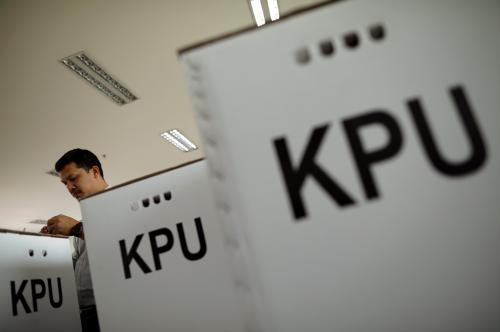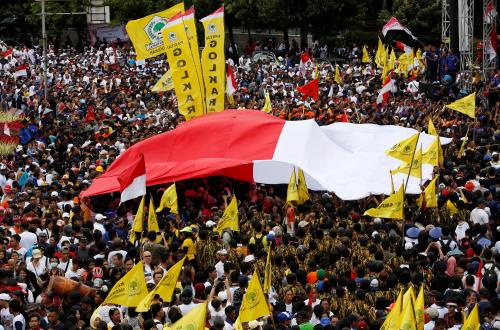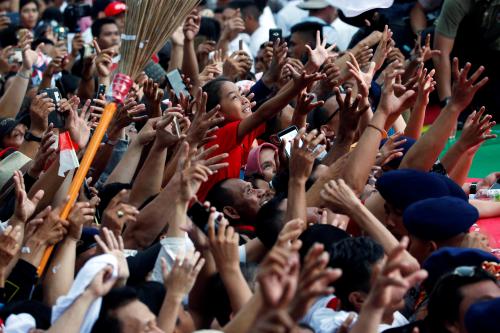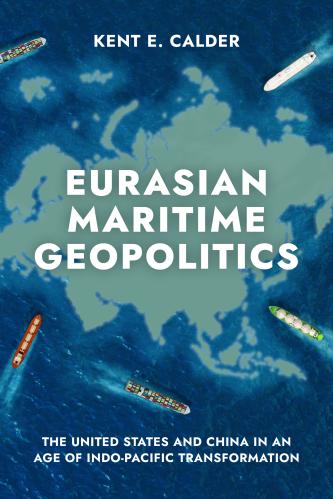The early estimates from Indonesia’s April 17 presidential, legislative, and regional elections have the incumbent, President Joko Widodo, defeating his opponent Prabowo Subianto by a margin of approximately 10 points. If this margin holds, it will amount to a decisive victory for Jokowi, who has now twice defeated Prabowo in a presidential race. The key thing to know beyond this top-line result, however, is that there are important changes in the regional composition of Jokowi’s voting bloc, as well as important developments in legislative results.
Looking first to regional patterns, early returns suggest that Jokowi’s victory will have depended more than before on votes from East and Central Java and from majority non-Muslim regions. This would represent an increasingly important cleavage between non-Javanese Muslims, on one hand, and Javanese Muslims and non-Muslims, on the other. We’ll need to await complete and more fine-grained election results to analyze this fully, but these findings show that Islam is playing an ever greater role as an identity bloc in Indonesian politics.
Looking to legislative elections, Prabowo has reason for optimism. Although results are still provisional, they suggest that Prabowo’s Great Indonesia Movement Party (Gerindra) will be the second-largest party in the legislature. This represents a disappointing loss in particular for Golkar, once a dominant political force in Indonesian politics, which looks now set to be only the third-largest party in the legislature, just behind Gerindra and far behind Jokowi’s Indonesian Democracy Party of Struggle (PDIP).
All of this remains provisional, for two reasons. First, it will take some time for full election results to be tallied, given the logistical challenges of holding so many races at once. Second, Prabowo is not bowing out of the presidential race yet—he has instead claimed victory in the election, vowing that the results will eventually confirm his victory and lodging official complaints against the polling firms that have released statistically-sound “quick count” results (all of which show Jokowi to be victorious). Prabowo did the same following his last defeat, however, so although this is an uncomfortable footnote to Indonesia’s fourth direct presidential election, it is unlikely to present a real challenge to the electoral results.
The Brookings Institution is committed to quality, independence, and impact.
We are supported by a diverse array of funders. In line with our values and policies, each Brookings publication represents the sole views of its author(s).








Commentary
In Indonesia, Jokowi’s victory reveals shifting voting patterns
April 18, 2019